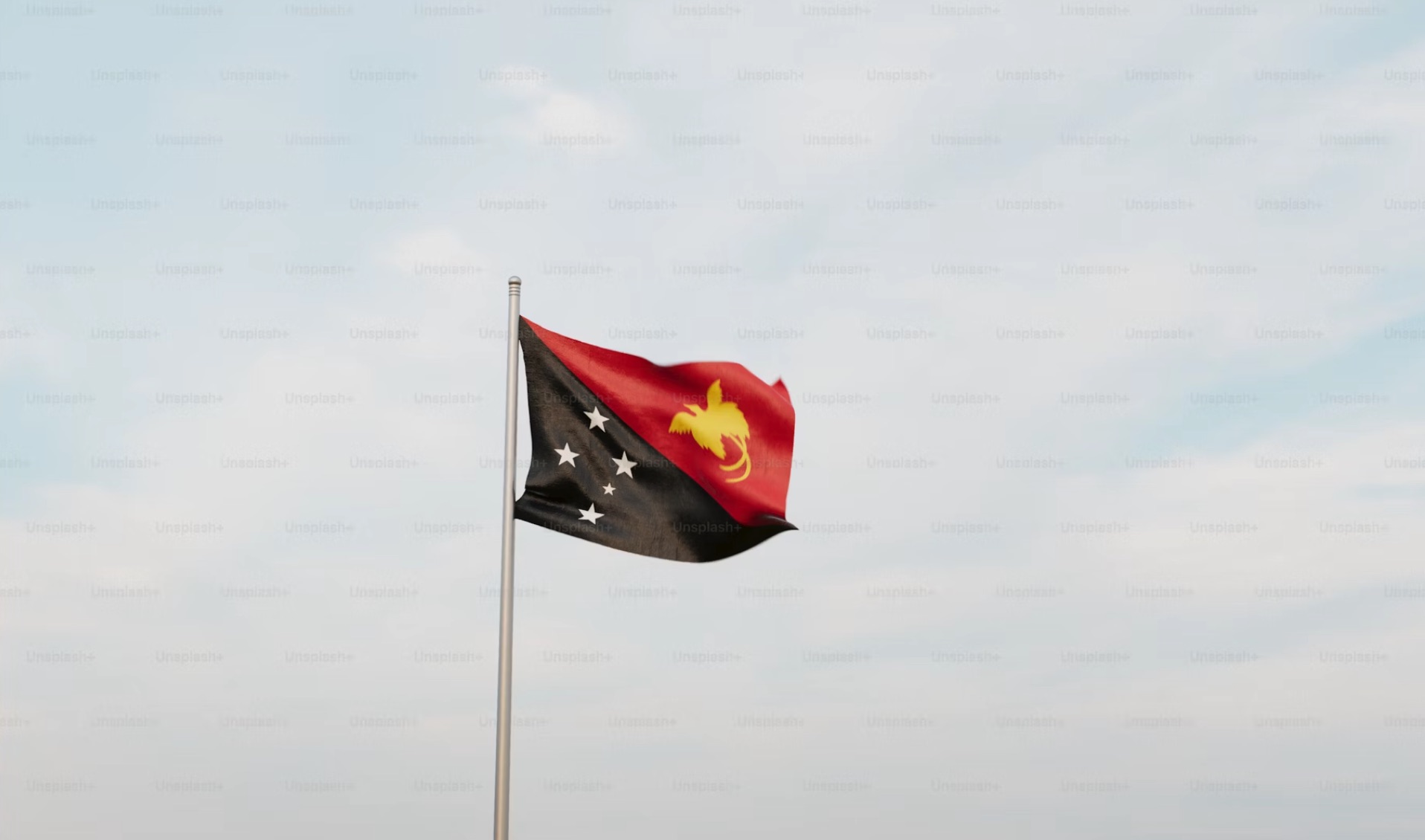As Papua New Guinea celebrates its 50th anniversary of independence in 2025, the surface-level celebrations mask a country falling apart at the seams. Violence has escalated to unprecedented levels and is no longer whispered about or hidden.
People on the streets are openly talking about armed robberies, sexual assaults, home invasions, and murders that the police refuse to register. The ruling class promotes a façade of unity, claiming progress and nationhood, but the reality is a state that cannot protect its citizens, where law enforcement is part of the problem, and where corruption permeates every level of government.
Crime and the Lead-Up to PNG 50
The political class has long insisted on the rhetoric of one nation, one country, but this is an artificial construct that papered over the divisions and violent realities of PNG society. The statistics are grim. In Port Moresby, Lae, Wewak, and other cities, people are regularly robbed at gunpoint. Sexual violence is common, with reports suggesting thousands of cases annually, many unreported because the police will not register them. Murders occur daily in certain urban areas and even in supposedly secure neighborhoods, with residents too fearful to go to authorities.
The police force is underpaid, understaffed, and in many cases corrupt. Officers routinely refuse to investigate crimes or take bribes to look the other way. This has led to a normalization of criminality. Locals largely stop reporting incidents, and even tourists have been assaulted and robbed at gunpoint without consequences. The government continues to deny the scale of these problems to maintain the illusion of national unity, but everyone on the streets knows the truth. Communities form their own patrols and rely on vigilante justice simply to survive. The situation is not improving.
What Is There to Celebrate Over 50 Years?
While some citizens feel a degree of pride over PNG’s 50th anniversary, the sentiment is uneven and fractured. Not all politicians are willing to join in the celebration. One prominent critic is the Tourism Minister, Hon. Belden Namah. He has spoken across the country about the gap between the country’s potential and its reality. Namah asks a simple question: what is there to celebrate?
PNG is rich in natural resources, arable land, fisheries, and tourism potential, yet most of its people live in abject poverty. Infrastructure is weak, health and education services are minimal outside urban centers, and corruption siphons resources away from the populace. Despite the beauty and natural wealth, the nation functions in a way that could be described as failed by any international standard.
Even if Namah were to gain more political power, there is no guarantee he would break the cycle of corruption. PNG politics is dominated by tribal alliances, patronage, and personal gain. Ministers often prioritize their own networks over meaningful reform. What the nation needs is systemic change, not another politician playing the same old game under a different banner.
The Bougainville Question
The Bougainville question is far from resolved. Leaders on the island remain adamant that independence will be achieved, with 2027 set as the target year. Preparations, however, remain minimal, and there is a real risk that the transition could be messy or violent. Prime Minister James Marape has apologized for PNG’s past treatment of Bougainville and promised cooperation, but history shows that the central government values territorial integrity over human life. If the state feels that independence threatens its authority, there is nothing preventing a return to conflict.
The stakes are high. If Bougainville achieves independence, it may inspire other communities in PNG—impoverished, battered, and exploited—to challenge their oppressors. The people may start questioning why they have tolerated fifty years of mismanagement and corruption while elites enrich themselves. Bougainville’s success could serve as a catalyst for a broader movement demanding accountability and real change.
Papua New Guinea Nearing a Breaking Point
PNG is approaching a tipping point. Crime, corruption, and political dysfunction have combined to push the country to the brink of collapse. Ordinary citizens are no longer safe. People are robbed, assaulted, or raped with near impunity. Police are frequently alleged to act as business partners with criminals, taking bribes or protecting gangs in exchange for money. The strike by police in Port Moresby last year demonstrated just how fragile the state is: when the force stopped working, the city descended into chaos, illustrating that the state does not protect citizens—it is held hostage by the very people tasked with upholding the law.
Government mismanagement and the personal ambitions of leaders only exacerbate the problem. PNG is effectively run by a system of fiefdoms, patronage networks, and opportunistic politicians, with ordinary citizens bearing the cost. Without immediate and drastic change, social unrest will continue to rise, and the possibility of mass uprisings becomes more likely.
The Revolution Papua New Guinea Needs
Whatever form it takes, PNG needs a revolution. Incremental reform will not work. The entire corrupt political and bureaucratic system must be dismantled. Ministries, state-owned enterprises such as Air Niugini, and other entrenched institutions must be stripped of power and wealth, with resources redirected to serve the people rather than the ruling elite.
Crime must be confronted directly. This could take the form of community militias or a citizens’ army, modeled on successful efforts in other nations that have faced lawlessness. The Philippines under Duterte provides one example of confronting violent criminality, and El Salvador’s recent measures offer another. Those who perpetuate violence and theft cannot continue to operate with impunity while ordinary citizens suffer.
Human rights and democracy arguments, often made by outsiders, are meaningless if citizens are robbed, raped, and killed daily. The rights of the population to safety, dignity, and survival outweigh the freedoms of criminals. The people of PNG have endured fifty years of misrule, corruption, and neglect. It cannot take another fifty before they rise and claim what is theirs through revolution if need be.

